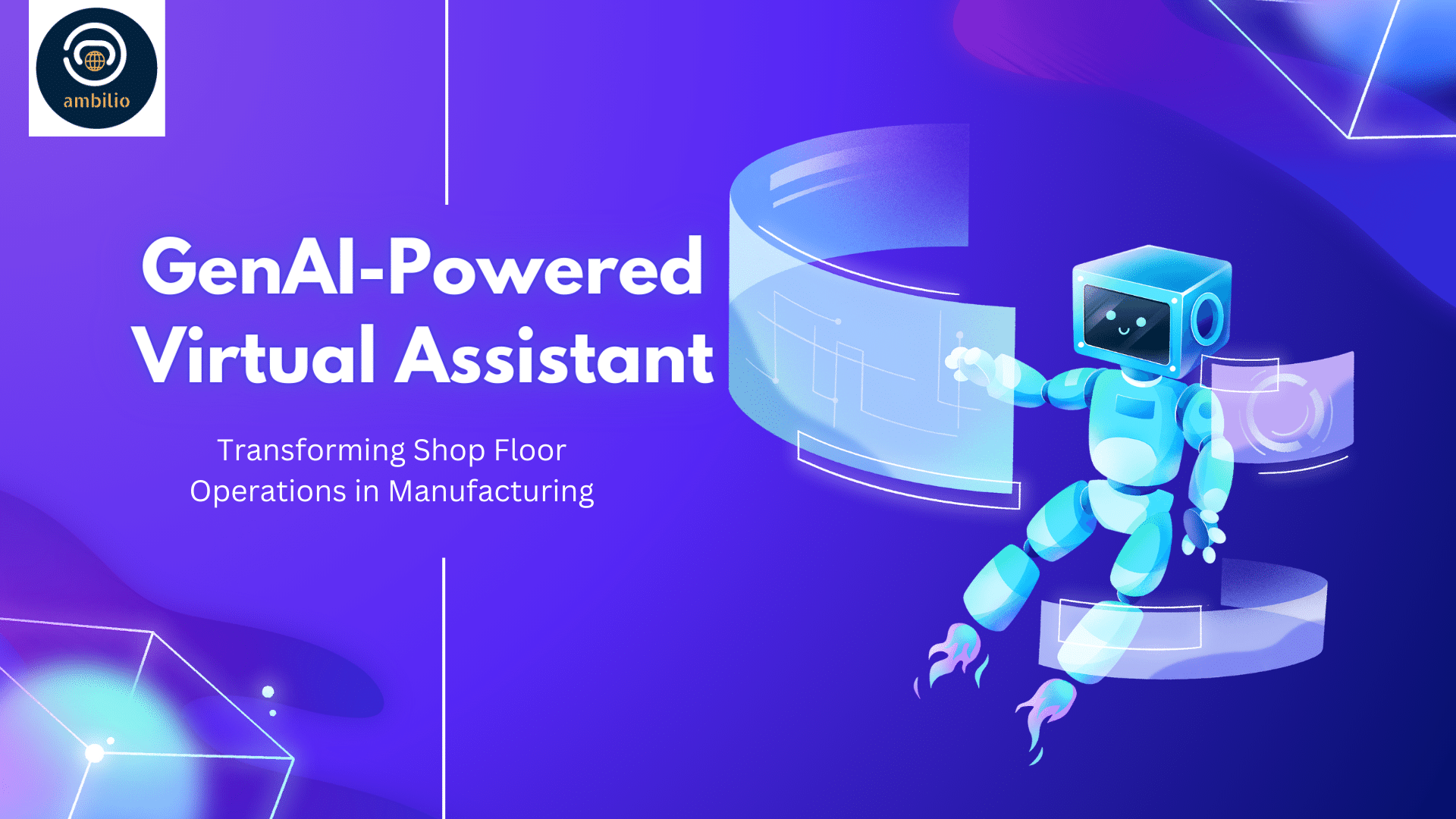In today’s rapidly evolving technological landscape, the integration of Generative AI and Large Language Models (LLMs) has emerged as a game-changer across various industries. The potential of these advanced AI systems extends far beyond conventional applications, especially within the manufacturing sector. With a focus on enhancing operational efficiency, reducing downtime, and streamlining processes, these technologies pave the way for innovative solutions. This coverage delves into the transformative potential of leveraging GenAI-powered Virtual Assistants for Shop Floor Workers, exploring its technical implementation, benefits, and the substantial Return on Investment (ROI) it promises.
Proposed Solution: Virtual Assistants for Shop Floor Workers
The proposed solution revolves around the deployment of AI-driven Virtual Assistants tailored specifically for shop floor workers in manufacturing units. Leveraging the capabilities of Large Language Models, these assistants are designed to provide instant and accurate responses to workers’ queries regarding procedures, safety protocols, equipment operation, and troubleshooting.
Technical Functionality
The technical implementation of this solution involves several crucial stages. Initially, extensive data collection comprising procedural guidelines, equipment manuals, historical worker queries, and safety protocols is undertaken. This dataset is utilized to train the AI-powered Virtual Assistant, enabling it to comprehend diverse queries and generate contextually relevant responses in real-time. The integration of this system with existing databases and communication channels ensures seamless information retrieval and updates.
Benefits Offered
The deployment of AI-driven Virtual Assistants on the shop floor brings forth a multitude of benefits. Firstly, it drastically reduces the time spent by workers searching for information or consulting supervisors, leading to heightened productivity. Moreover, the immediate access to accurate information minimizes errors in procedures and equipment operation, subsequently reducing downtime and enhancing overall operational efficiency. Additionally, the streamlined access to information decreases the necessity for extensive training sessions, thereby reducing associated costs and contributing to improved worker satisfaction and retention rates.
Expected ROI
Anticipating the implementation of AI-powered Virtual Assistants for Shop Floor Workers, the potential Return on Investment is considerable. With an estimated 20% to 40% reduction in time spent seeking information or consulting supervisors, productivity gains are expected to reach 15% to 25%. This efficiency improvement is further complemented by a potential cost reduction of 15% to 30% in training expenses and minimized errors leading to decreased downtime. Moreover, the enhanced worker satisfaction and improved retention rates contribute tangibly to the overall ROI.
Final Words
In conclusion, the integration of AI-powered Virtual Assistants for Shop Floor Workers stands as a pioneering solution poised to revolutionize manufacturing operations. Ambilio, at the forefront of deploying cutting-edge AI technologies, offers tailored solutions for manufacturers seeking to harness the transformative potential of AI-driven assistants. The amalgamation of advanced AI capabilities with manufacturing processes represents a paradigm shift towards heightened efficiency, cost-effectiveness, and improved worker engagement. Manufacturers can connect with Ambilio to explore personalized solutions, unlocking the full potential of AI in manufacturing.



